第429章
Sometimes they carry on the pretence of talking gibberish, and behaving as if they had returned from the spirit-world. After this they are known by another name, peculiar to those who have 'died Ndembo.' We hear of the custom far along on the upper river, as well as in the cataract region.
Among some of the Indian tribes of North America there exist certain religious associations which are only open to candidates who have gone through a pretence of being killed and brought to life again. In 1766 or 1767 Captain Jonathan Carver witnessed the admission of a candidate to an association called the friendly society of the Spirit (Wakon-Kitchewah) among the Naudowessies, a Siouan or Dacotan tribe in the region of the great lakes. The candidate knelt before the chief, who told him that he himself was now agitated by the same spirit which he should in a few moments communicate to him; that it would strike him dead, but that he would instantly be restored again to life; to this he added, that the communication, however terrifying, was a necessary introduction to the advantages enjoyed by the community into which he was on the point of being admitted. As he spoke this, he appeared to be greatly agitated; till at last his emotions became so violent, that his countenance was distorted, and his whole frame convulsed. At this juncture he threw something that appeared both in shape and colour like a small bean, at the young man, which seemed to enter his mouth, and he instantly fell as motionless as if he had been shot. For a time the man lay like dead, but under a shower of blows he showed signs of consciousness, and finally, discharging from his mouth the bean, or whatever it was that the chief had thrown at him, he came to life. In other tribes, for example, the Ojebways, Winnebagoes, and Dacotas or Sioux, the instrument by which the candidate is apparently slain is the medicine-bag. The bag is made of the skin of an animal (such as the otter, wild cat, serpent, bear, raccoon, wolf, owl, weasel), of which it roughly preserves the shape. Each member of the society has one of these bags, in which he keeps the odds and ends that make up his medicine or charms. They believe that from the miscellaneous contents in the belly of the skin bag or animal there issues a spirit or breath, which has the power, not only to knock down and kill a man, but also to set him up and restore him to life. The mode of killing a man with one of these medicine-bags is to thrust it at him; he falls like dead, but a second thrust of the bag restores him to life.
A ceremony witnessed by the castaway John R. Jewitt during his captivity among the Indians of Nootka Sound doubtless belongs to this class of customs.
The Indian king or chief discharged a pistol close to his son's ear, who immediately fell down as if killed, upon which all the women of the house set up a most lamentable cry, tearing handfuls of hair from their heads, and exclaiming that the prince was dead; at the same time a great number of the inhabitants rushed into the house armed with their daggers, muskets, etc., enquiring the cause of their outcry. These were immediately followed by two others dressed in wolf-skins, with masks over their faces representing the head of that animal. The latter came in on their hands and feet in the manner of a beast, and taking up the prince, carried him off upon their backs, retiring in the same manner they entered. In another place Jewitt mentions that the young princea lad of about eleven years of agewore a mask in imitation of a wolf's head. Now, as the Indians of this part of America are divided into totem clans, of which the Wolf clan is one of the principal, and as the members of each clan are in the habit of wearing some portion of the totem animal about their person, it is probable that the prince belonged to the Wolf clan, and that the ceremony described by Jewitt represented the killing of the lad in order that he might be born anew as a wolf, much in the same way that the Basque hunter supposed himself to have been killed and to have come to life again as a bear.